Can’t lose weight no matter what?
You eat right and exercise, but your belly fat just doesn’t go away.
Today, you’ll learn how to stop your weight loss plateau.
In this post, you’ll learn:
- What you can do to lose weight EVEN IF you’ve struggled with losing weight for years
- Common medical conditions that make losing weight harder
- How to make sure you’re not eating more calories than you think
- Whether “having good genes” is fact or fiction
Ready to learn more? Read on!
Get the free cheat sheet with 10 surprising fat-burning foods.
Why are you not losing weight even though you are exercising and eating right?
Ever thought, “Why cant I lose fat no matter what I do?”
You’re “doing everything right.” You’re not binging on ice cream or sneaking candy bars into your cart at the grocery store.
You’re eating healthy, and maybe even exercising. But, you still aren’t seeing that reflected in the numbers on the scale or in the way your clothing fits.
Believe me when I say that I HEAR you. You are not alone in your struggle. There’s nothing more frustrating than feeling like you’re already “being good” or even being restrictive with your diet, and still NOT getting any results.
Meanwhile, your friend Katie is mowing down on brownies from the cafe downstairs every afternoon when she stops by your office to chat. Of course, she’s at least two dress sizes smaller than you and “is too lazy to work out.”
It’s SO not fair!
It seems like weight isn’t even a problem for most people, but for you, losing weight just means they have to cut back on eating pizza every single night.
There you are, eating bland cabbage soup at lunch and your stomach is still bulging over as you lean in to sip another boring mouthful.
Does losing weight have to feel this hard?
There are a few reasons why it really is easier for some people to lose weight than others. It’s not in your head and you’re not crazy. Here’s what I mean.
Why can’t I lose weight no matter what I do?
So many of my clients come to me and say, “I’ve tried everything to lose weight.” Yet, nothing seems to work.
Take my client Heather.
She had been on diets for years. While she would lose a few pounds here and there, that weight always came back on.
Well, it WAS possible for her to lose weight. During our time together, she lost 13 pounds in 8 weeks. She then went on to lose 42 pounds!
So, why was Heather able to lose all this weight? And what might be keeping you from losing weight? That’s what we’ll look at next.
Reason #1: Yo-yo dieting confuses and slows your metabolism
Did you know that diets are really bad for you?
And if you’re on a diet, THAT might just be the reason you’re not losing weight.
I used to be there, too. Before I lost 40 pounds in 9 months, I had tried almost every diet out there. I’d lose a few pounds, but they always crept back on.
Why? Turns out there’s a simple reason for this.
Research shows that overly depriving yourself of calories and then going back to normal eating (or binging, often the result of feeling deprived) actually changes the way your body stores fat.
This starvation cycle changes your body so that when you start eating again, there are plenty of extra fat reserves in case food becomes scarce again later. Then, it even causes an immune response that makes losing that fat harder.
It’s true: a study of a group of people who had participated in the TV show “The Biggest Loser” revealed that people who deprived themselves slowed down their metabolism.
While they did lose a lot of weight during the show, they ended up gaining back all that weight. AND their metabolism was now destroyed.
Thanks a lot, body! It’s technically good because it’s a biological defense against starvation, but it makes getting the figure you want feel almost impossible.
So, if you want to lose weight, stay off restrictive diets.
Reason #2: You may be eating more calories than you think
People underestimate the amount of calories they eat.
You might think you’re eating healthy, but if you just scoop your tablespoon into the peanut butter jar for one extra scoop, you’d add 94 calories. Having that on another slice of toast? Well, that could add 80 more calories. That’s almost 200 extra calories!
Having one Kind Bar could add about the same at between 180 and 190 calories.

All this isn’t to say you should obsessively start counting calories and restrict yourself.
No, just that you might want to do a food audit to see if you’re really eating as healthy as you think you are.
Do an audit of everything you’re eating for three days. Three days is a good measure, and it’s all you need to see the patterns of what you’re eating, and you won’t feel overwhelmed as you may if you tracked every single day.
Measure your food and add into a food tracker such as My Fitness Pal or just write everything you eat down in the Notes app on your phone.
Once you see the calorie leaks, you can make small adjustments that might make a big difference.
Reason #3: You may be eating more healthy fat than you need
Another pitfall is to eat too much fat, even if it’s healthy fat. Fats, even healthy fats like avocado and nuts are good for weight loss until they’re not. Even “good fat” can pack on hidden calories.
The total fat intake for adults aged 19 or more should be 20-35% of the calories eaten every day. Less than 10% of your calories should come from saturated fatty acids (such as butter, coconut oil, and meat fats).
The difference between one and two servings of healthy fat is dramatic. Look at these favorite weight-loss foods that have healthy fats when doubled.
And it’s not even just about weight loss — fats impact your cholesterol, heart health, and more.
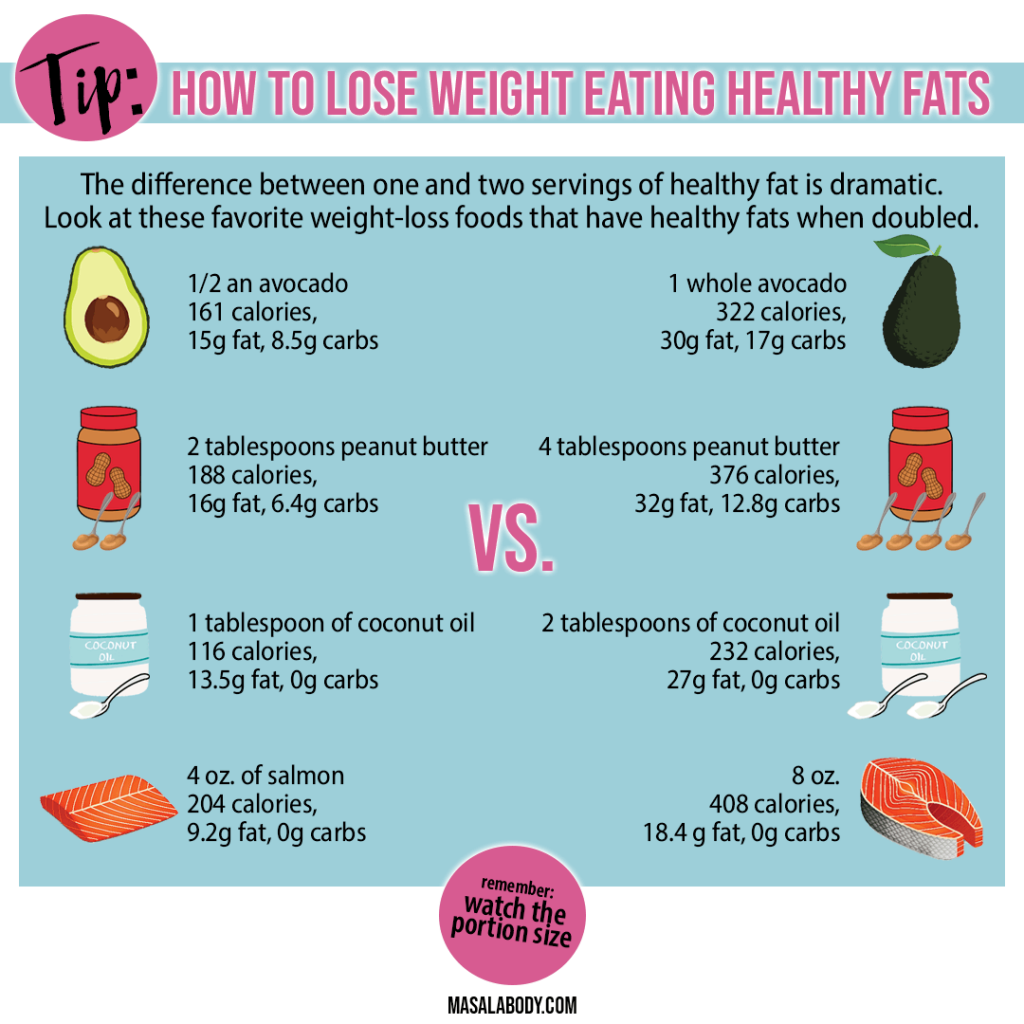
You may be layering on calories and don’t even realize how many they are. So be mindful of portion sizes for foods that have higher fat content.
Reason #4: Stress can override all your hard work and make losing weight hard
Did you know that stress can affect your weight?
It’s true.
You might be giving in to stress eating and last-minute convenience foods (more calories) more than you think.
Stress hormones like cortisol can cause fat gain and storage. It’s one more biological roadblock to losing weight, even if you aren’t overeating. And when you’re stressed, you eat more junk food.
If you’re stressed, make sure you take steps to take care of yourself. Plan in family time and fun activities, exercise more, and take breaks during the day.

Get the free cheat sheet with 10 surprising fat-burning foods.
Reason #5: Genes and unfair predisposition can stack up against you
Look: Sometimes, it’s just your body type. Depending on the person, genes can account for 25-70% of your weight.
You might have a body type that naturally holds onto fat more. In fact, what your mom ate while she was pregnant with you can actually impact foods you prefer and how/where your body holds onto fat to this day.
That doesn’t mean that you can’t do anything about it. You can!
Even if your genes might have a lot to do with your weight, there’s usually something you can do, like adding on strength training, changing your diet, or sleeping more.
Reason #6: You get too little sleep
If you’re not getting 7-8 hours of sleep every night, your sleeping habits might be the culprit to your weight gain.
Sleep deprivation affects your food choices and your circadian rhythm, leading to weight gain.
Think about how much sleep you get every night. If too little, go to bed earlier to ensure you get enough sleep.
Reason #7: You over-focus on exercise
What I’ve learned from my own weight loss journey and after having worked with hundreds of women is that food is 80% of your weight loss.
So, if you’re overfocusing on exercise, and not on the foods you eat, you might have your answer right there.
Plus, the type of exercise you get counts, too. Strength training boosts your metabolism, whereas cardio doesn’t.
Reason #8: Your age
As you age, your body changes. And so does your metabolism.
From your 30s on, you lose muscle mass every year. And that’s replaced with fat. And as you hit your 50s, your estrogen levels decline, which makes it harder to lose weight.
But that doesn’t mean that it’s impossible for you to lose weight in your 40s, 50s, and 60s.
Not at all! I work mainly with women in these age groups and they go on to lose 20-60 pounds.
What it comes down to is using strategies that are tailored for your age.
Now, what are some medical reasons if you can’t lose weight? That’s what we’ll look at next.
What medical conditions can stop you from losing weight?
There could be legitimate medical reasons for your scale of frustration, and asking “Why can’t I lose weight no matter what I do?” Here they are.
Hypothyroidism and Hyperthyroidism
Hypothyroidism means that your thyroid slows down, and this can lead to a slower metabolism, too. It can be a frustrating block to your weight loss.
On the other side, hyperthyroidism is when your thyroid speeds up above normal. While this can lead to weight loss, sometimes it increases your appetite so much that you eat too much and end up gaining weight.
Polycystic Ovary Syndrome (PCOS)
Polycystic Ovary Syndrome is a condition causing insulin resistance and unwanted fat accumulation in the abdomen because of hormones. The best way to get a diagnosis is to talk to your gynecologist.
Lipedema
Lipedema is another frustrating condition where you might gain and store extra fat on your hips, legs, and thighs that’s incredibly hard to burn off.
If you suspect that you might be struggling with any of these conditions, ask your doctor if you can be tested. All of these can be improved with treatment!
Note, though, that even if you have these conditions, healthy lifestyle changes are always a good idea. Your persistent weight might also have to do with the reasons above.
What to do when you can’t lose weight
Now you know what might be causing your weight gain or plateau.
But how do you go on to actually lose weight? Here’s what you need to know.
Join a supportive community
So many of us wonder, “Why can’t I lose weight no matter what I do?” Finding support from other people who have the same goals (and struggles!) make the whole process of losing weight SO much easier and more fun!
If you’re looking for a good one where you’ll get lots of encouragement, healthy food ideas, tips, recipes, and inspiration, follow me on Instagram and join the Masala Body Facebook Page.
Set realistic goals
Research shows that setting targets improves long-term weight loss. And according to a Yale study, small, short-term goals were the most effective for helping people lose weight.
Start at as little as losing two pounds a month, and celebrate ANY progress, even if it’s slow.
Before you know it, it’ll add up and you’ll feel so happy when you try on that sexy little dress and it actually looks great on you!
Focus on eating, living, being healthy rather than hitting a specific number on the scale
Do this by eating anti-inflammatory whole foods, learning to deal with stress in healthier ways, and get good quality sleep.
Keep track of what you’re eating
According to research, one of the most effective ways to lose weight is to record daily calorie and fat intake and pair it with support (a personal weight loss coach or similar).
I talked about this at the beginning of this post. It’s one of the most powerful ways to answer the question, “Why can’t I lose weight no matter what I do?” It’s the most accurate way to be sure you’re not eating more than you realize, and keeping yourself stuck.
Every day, write down what you eat. It doesn’t have to be hard, but make it a habit so that you stick to it.
Get the free cheat sheet with 10 surprising fat-burning foods.
Over to you!
There you have it! Now you know why you can’t lose weight no matter what you do.
Next, I’d love to hear from you:
Which roadblocks do you think you might be hitting and how are you going to address them?
Let me know in the comments below!







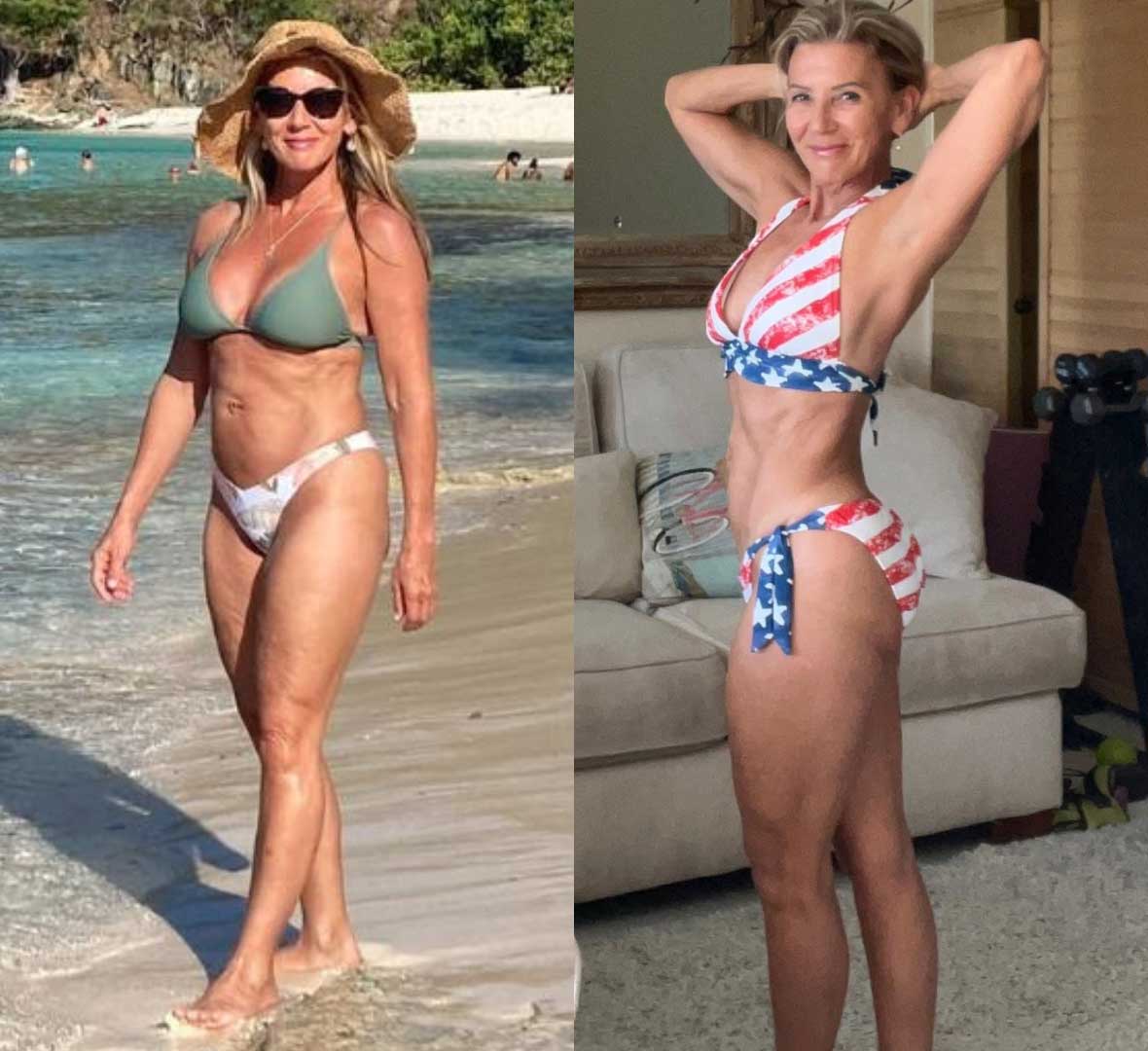



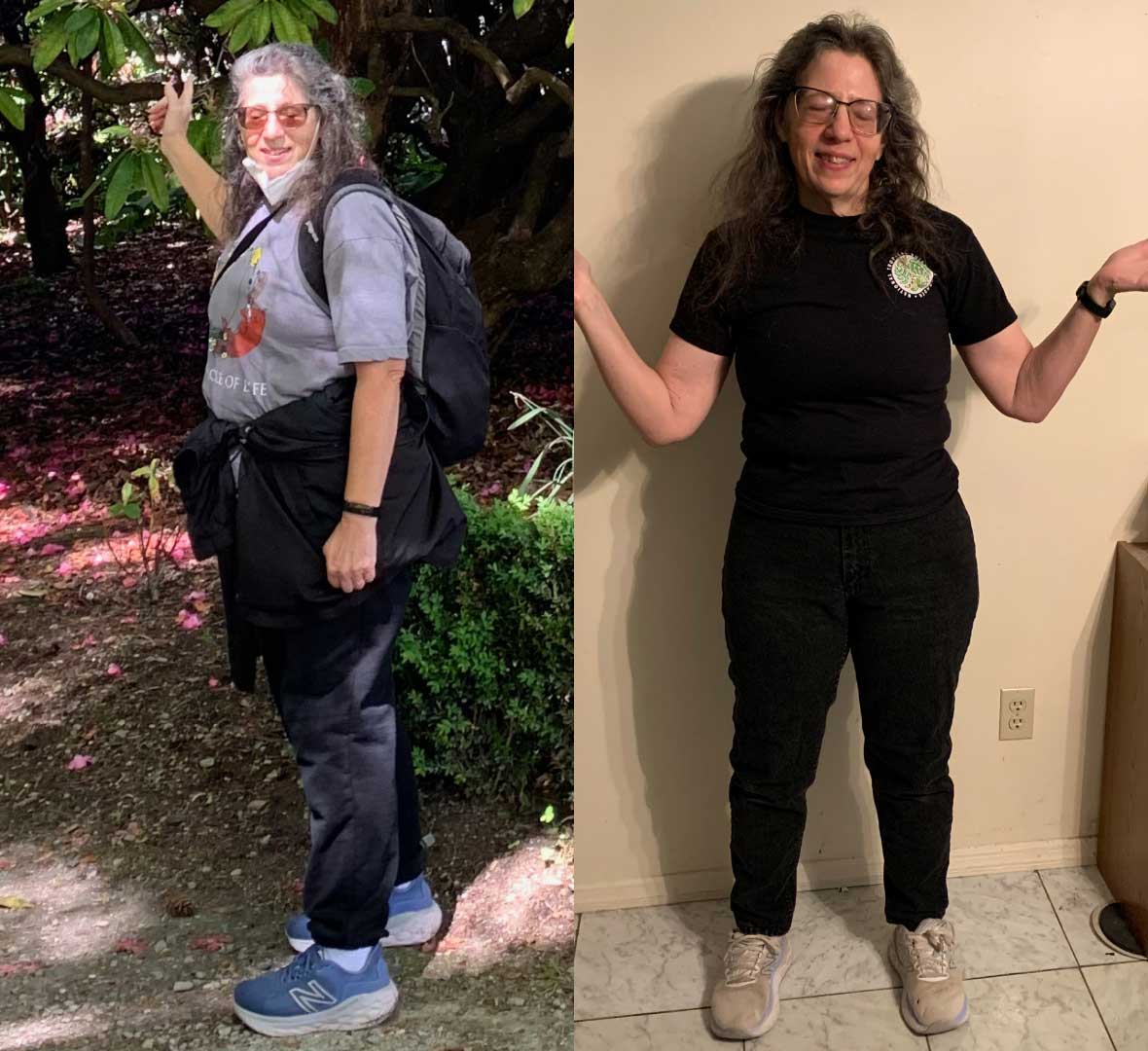

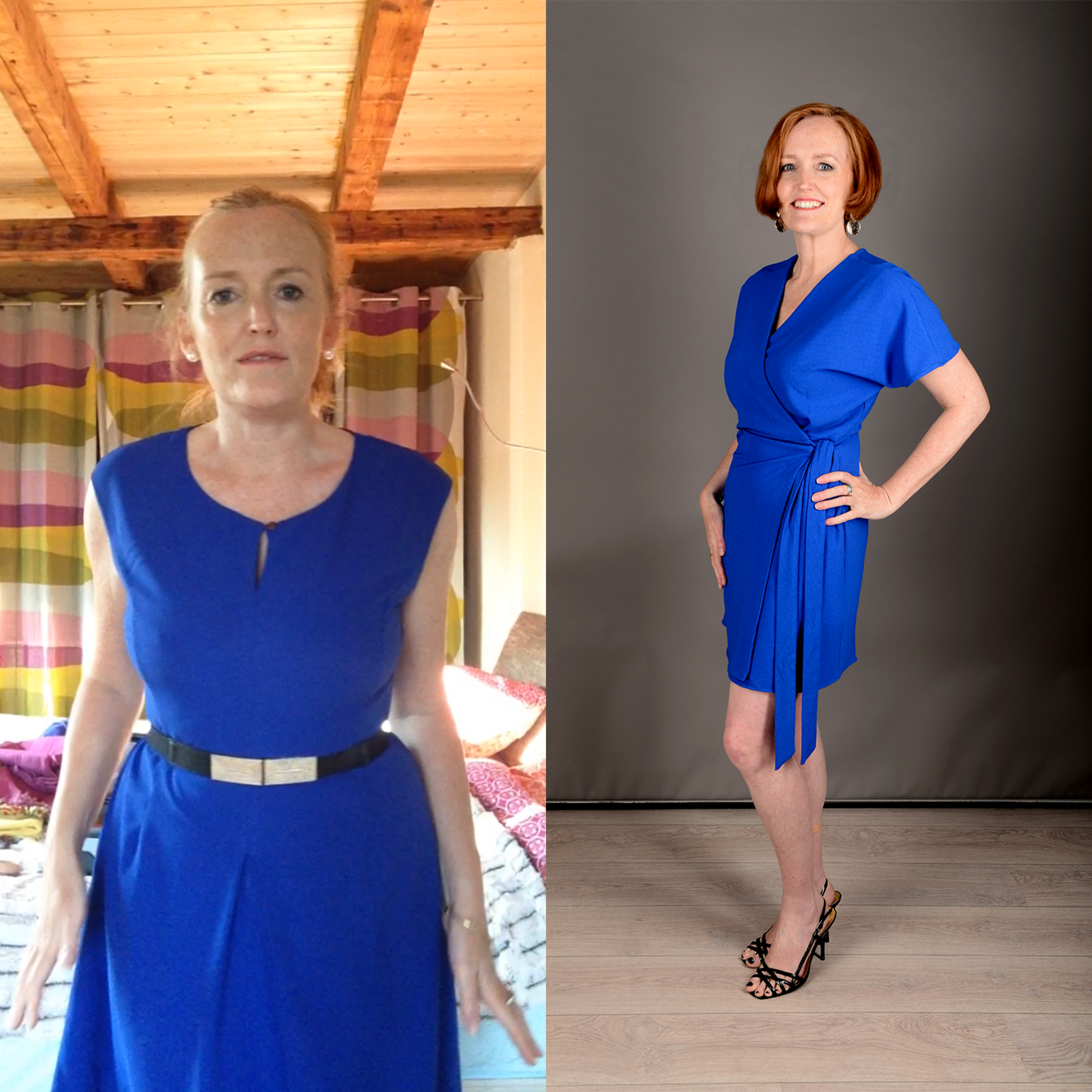



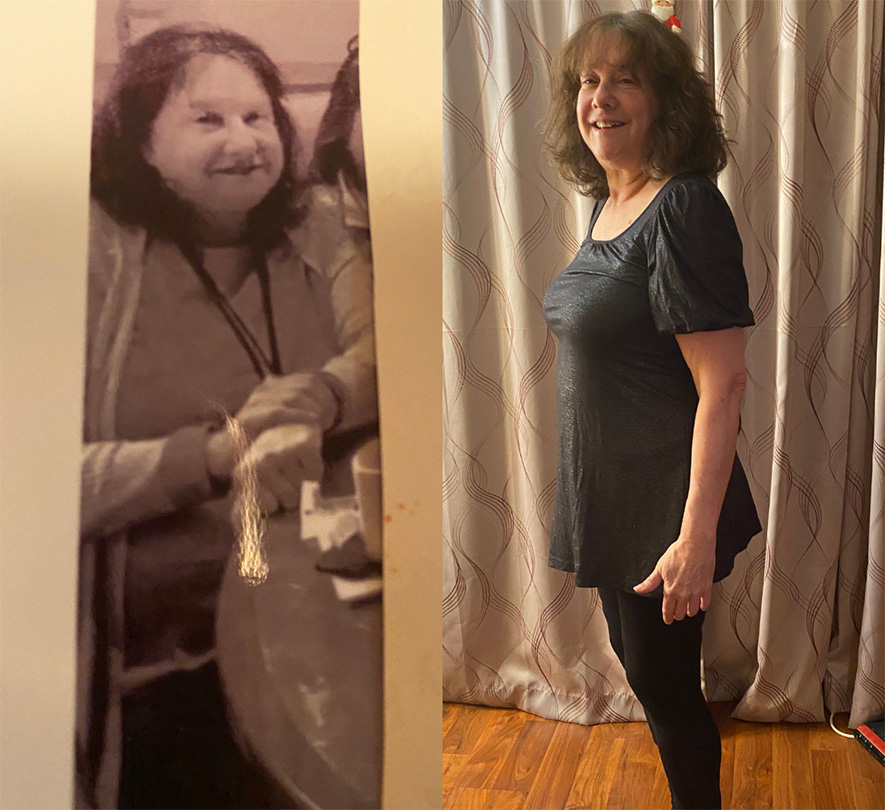





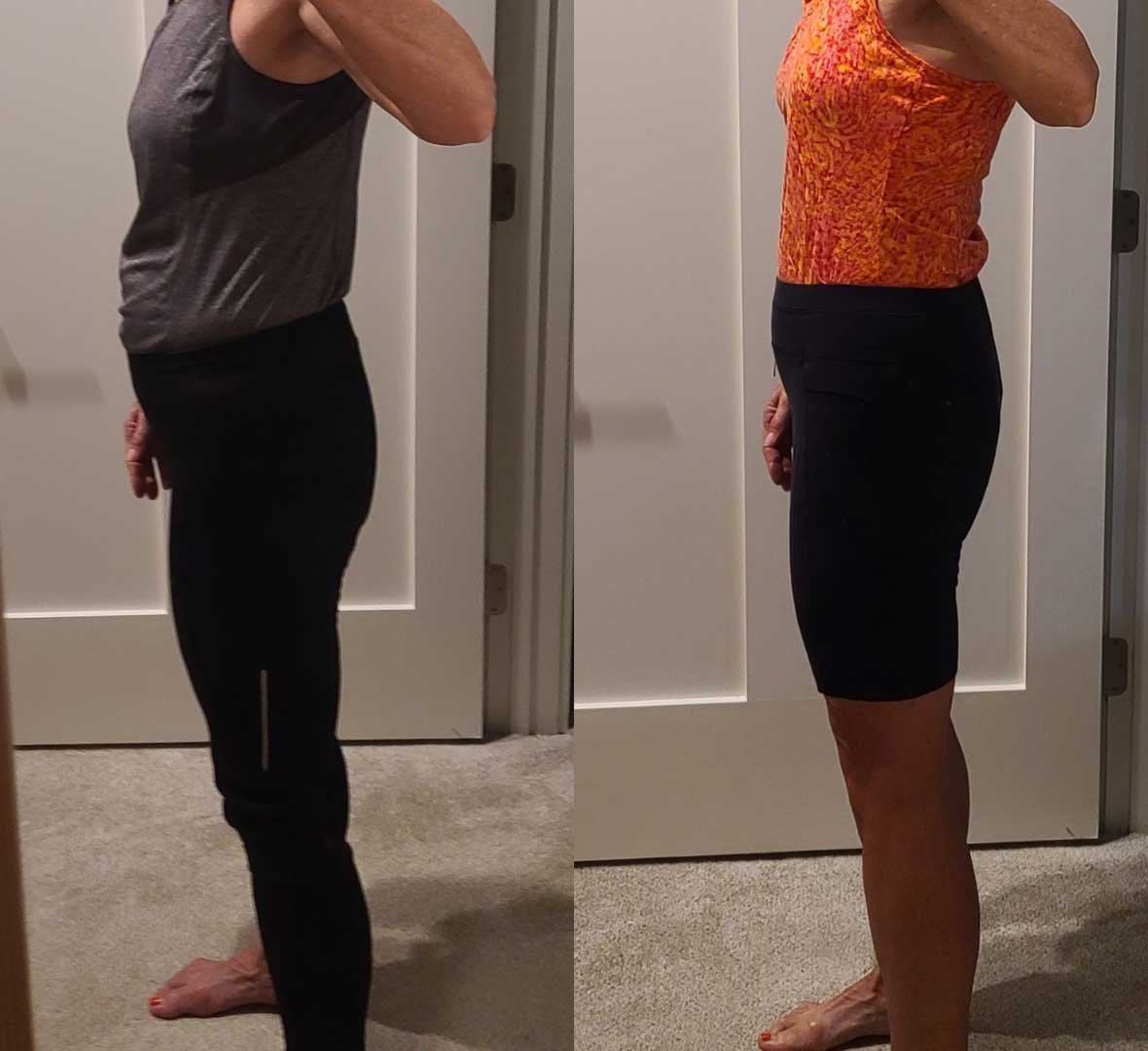










Reader Interactions